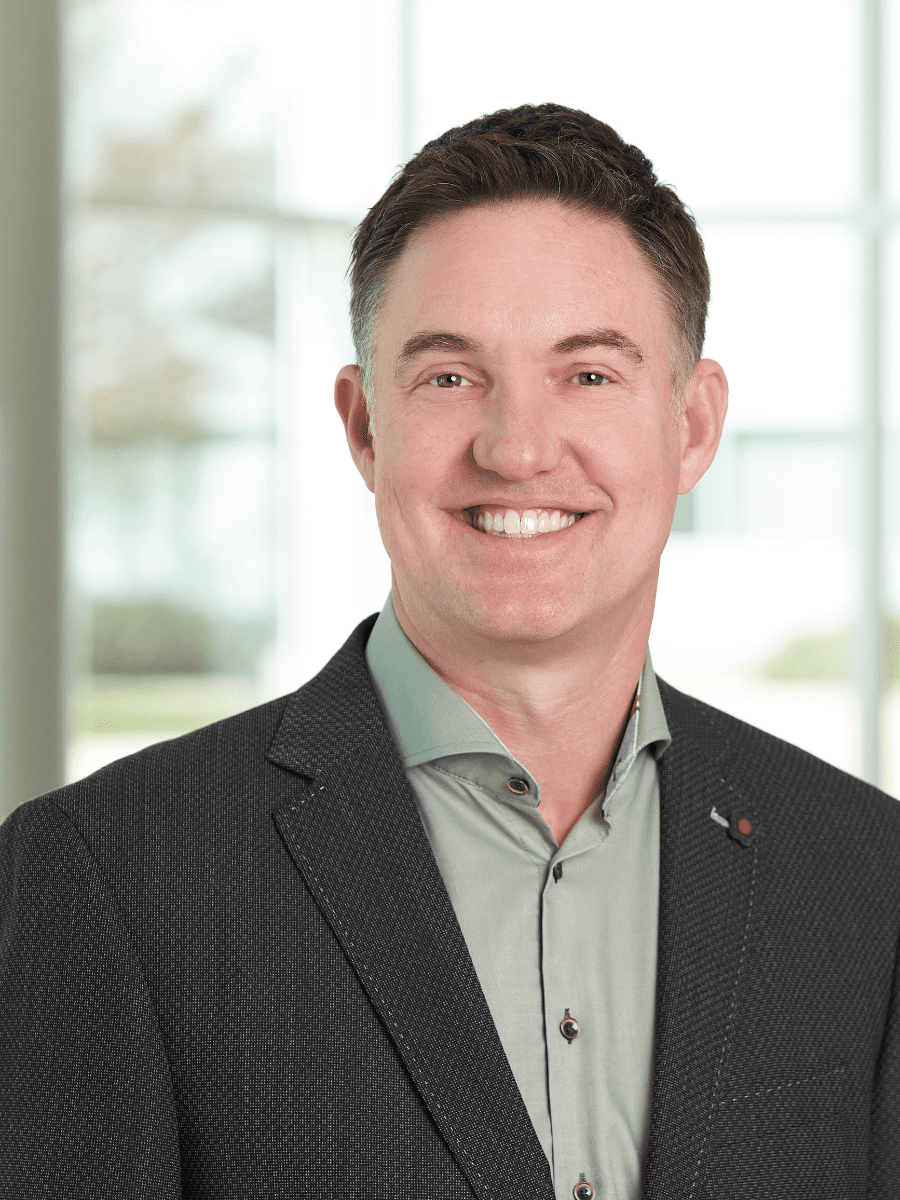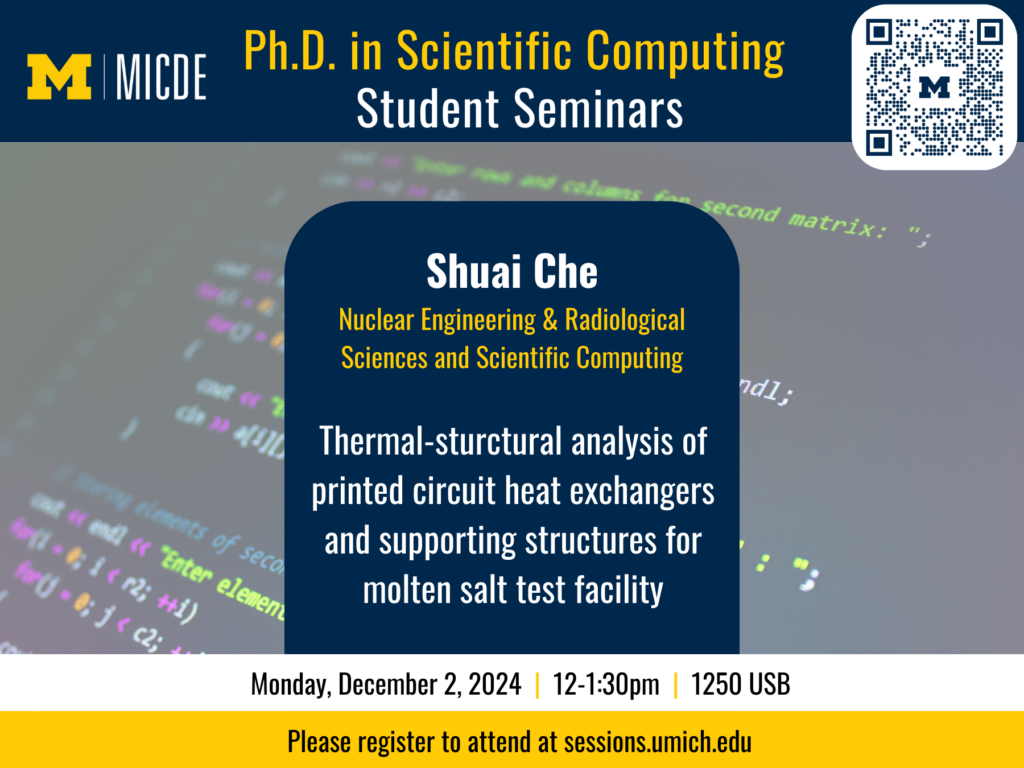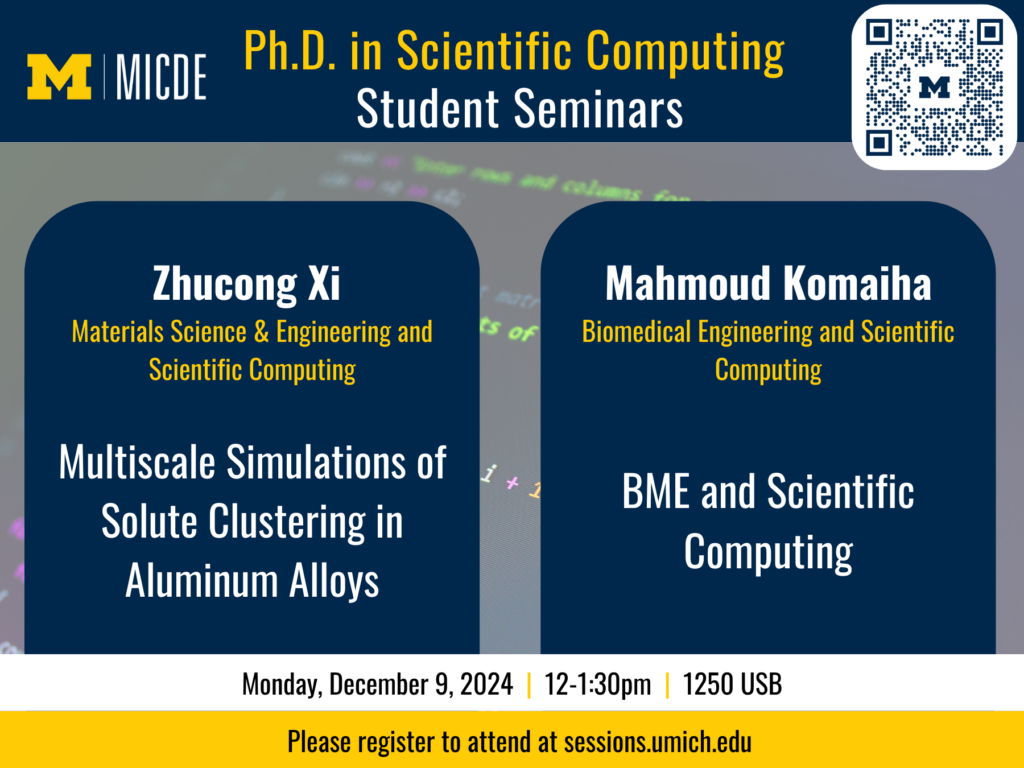Events

- This event has passed.
MICDE / ME Seminar: Erik Draeger, Director of the High Performance Computing Innovation Center and RADIUSS project at Lawrence Livermore National Laboratory
October 27, 2023 @ 4:00 pm - 5:00 pm
Venue: 1670 Bob and Betty Beyster Building

Bio: Dr. Erik Draeger is the Director of the High Performance Computing Innovation Center and RADIUSS project at Lawrence Livermore National Laboratory as well as the Scientific Computing group leader at the Center for Applied Scientific Computing. He is also the Deputy Director of Application Development for the Exascale Computing Project, jointly overseeing a portfolio of 22 Office of Science applications, 4 NNSA applications, and 7 co-design projects. Erik earned a Bachelor’s degree in Physics from the University of California, Berkeley in 1995 and received a PhD in theoretical condensed matter physics from the University of Illinois, Urbana-Champaign in 2001. He has over a decade of experience developing scientific applications to achieve maximum scalability and time to solution on next-generation architectures. He has been a finalist for the Gordon Bell Prize six times since 2005 and won the prize in 2006.
Supercomputing at the exascale and beyond: future trends and challenges
For the past seven years, the U.S. Department of Energy’s Exascale Computing Project (ECP) has funded a comprehensive push to refactor 24 application projects to efficiently utilize exascale computing hardware to solve a varied set of complex science and engineering problems. Ambitious performance and capability goals were set for each application that demanded end-to-end rethinking of traditional approaches. Through detailed performance analysis, integration with optimized co-design frameworks and software libraries, and the use of programming abstractions to manage data placement and kernel execution, ECP applications recently demonstrated substantial capability and performance improvements on newly-available exascale machines. Despite significant diversity in the methods and algorithms underlying the ECP application portfolio, several common themes emerged in how to best adapt computational workloads to heterogeneous architectures. In this talk, an overview of best practices and lessons learned on effectively utilizing exascale hardware from the perspective of ECP applications will be presented. Strategies for developing portable, performant code will be discussed and examples of reexamining traditional algorithms and methods will be described. Armed with this knowledge, researchers can go beyond simply surviving an uncertain and turbulent computing future to instead leading a wave of scientific and computational innovation as traditional approaches are reexamined and new approaches adopted.
The MICDE Fall 2023 Seminar Series is open to all. University of Michigan faculty and students interested in predicting and explaining the properties of materials using computer simulation are encouraged to attend.
This seminar is cohosted by the Michigan Institute for Computational Discovery & Engineering (MICDE) and the Department of Mechanical Engineering (ME). Dr. Draeger will be hosted by Dr. Vikram Gavini, Professor of Mechanical Engineering.
This is an in-person event.
Graduate Certificate in Computational Discovery and Engineering, and MICDE fellows, please use this form to record your attendance.
Questions? Email [email protected]


